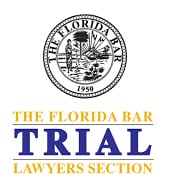Racing down exciting water slides, inner-tubing along the lazy river, splashing around in the shallow water, playing at the water jungle gym—there’s nothing more fun than a family outing at the local water park! You presume, based on the seemingly disproportionate number of lifeguards patrolling the park, that you’re safe from any possible physical harm. On the contrary, water parks have historically seen many injuries, sicknesses, and even deaths for both children and adult visitors.
If you or a loved one has been the victim of a water park accident, you may wonder if you have any legal recourse. The answer depends on a number of factors, including who was at fault, whether there was a dangerous defect or hazardous foreign substance on the property, and whether you waived your rights to sue. We’ve broken down everything you need to know.
Can You File a Personal Injury Lawsuit If You Were Injured at a Water Park?
Anyone injured in a waterpark accident may be able to file a personal injury lawsuit against those responsible for the damage. If successful, the at-fault party would be required to pay off some or all of the injured party’s medical bills, physical therapy costs, lost wages, pain and suffering, and other reparations depending on the circumstances of the case.
It’s important to note, as well, that there may be multiple parties held accountable, including the park owner, ride operator, maintenance staff, manufacturer, and lifeguards. You could also be held partially at fault for the accident, with the park holding only a percentage of the blame. Of course, determining who’s liable for an accident of this nature isn’t always simple.
Specific issues that can cause water park injuries include:
- Lack of pool maintenance on premises and rides
- Overly crowded pools
- Lifeguard error
- Inadequate lifeguard training
- Improper warnings regarding hazards
- Failure to enforce height and weight regulations
In order to successfully win a personal injury lawsuit, you’ll likely need evidence, witness testimony, photographs of the accident scene, medical records, and the help of a trusted Florida personal injury attorney who understands state law and can help you choose a winning defense strategy based on the circumstances of your case.
What Kind of Personal Injury Lawsuit Can You Present After a Water Park Accident?
Liability in a water park accident is generally based on one of the following types of personal injury claims:
Negligence
To recoup damages in a water park injury case based on negligence, you must demonstrate that the at-fault party owed you a “duty of care.” This means that they had a legal obligation to use reasonable care to avoid injuring others. Likewise, you must prove that the negligent individual breached their duty of care and that the breach directly caused your injuries.
Premises Liability
Under premises liability law, the owner of any property has a duty to keep the area safe for guests. This is called the duty of ordinary care. In this case, owners have a responsibility to safely maintain the pools, rides, locker rooms, food court, and all other areas of the park open to guests and staff. They must ensure consistent inspections and, if a hazard is discovered, address that danger in a timely manner.
Vicarious Liability
If a negligent employee is responsible for causing an accident, the waterpark company may be liable for the actions of the employee. In this case, you must prove that you were harmed as a result of the employee’s negligence and that the company is responsible for the injuries because the employee was acting within the scope of their assigned duties when the incident occurred.
Product Defect Liability
A parts manufacturer can bear liability if a defective safety device or faulty drain cover was partially responsible for the water park accident. When this is the case, both the manufacturer and party accountable for maintaining the equipment will undergo an investigation.
It’s important to note that some water parks may require parents to sign a liability waiver so their kids can use a water park or participate in swimming activities. If this is the case, the waiver likely protects the water park operator or owner from personal injury lawsuits for ordinary negligence. However, you still may be able to pursue a claim based on gross negligence, recklessness, violation of safety regulations, or intentional harm. An expert Florida personal injury lawyer can help you determine the best course of action based on the circumstances of your case.
Consult a Trusted Water Park Injury Attorney in Boca Raton
If you’ve suffered an injury as a result of a water park accident in Florida, it’s important that you get in touch with a qualified personal injury attorney who can help you get the necessary compensation you deserve. The trusted lawyers at Baker Legal Team can help build, file, and present your case. Robert B. Baker is a trusted trial attorney with more than 30 years of experience providing expert guidance throughout every stage of the legal process for injured water park accident victims.
We understand that recovering from a personal injury can be a challenging and emotional experience. Robert has recovered millions of dollars for clients throughout his career and will personally handle your water park injury case to ensure that your case proceeds as smoothly and efficiently as possible. Give us a call at (561) 320-0000 or complete our contact form today!











